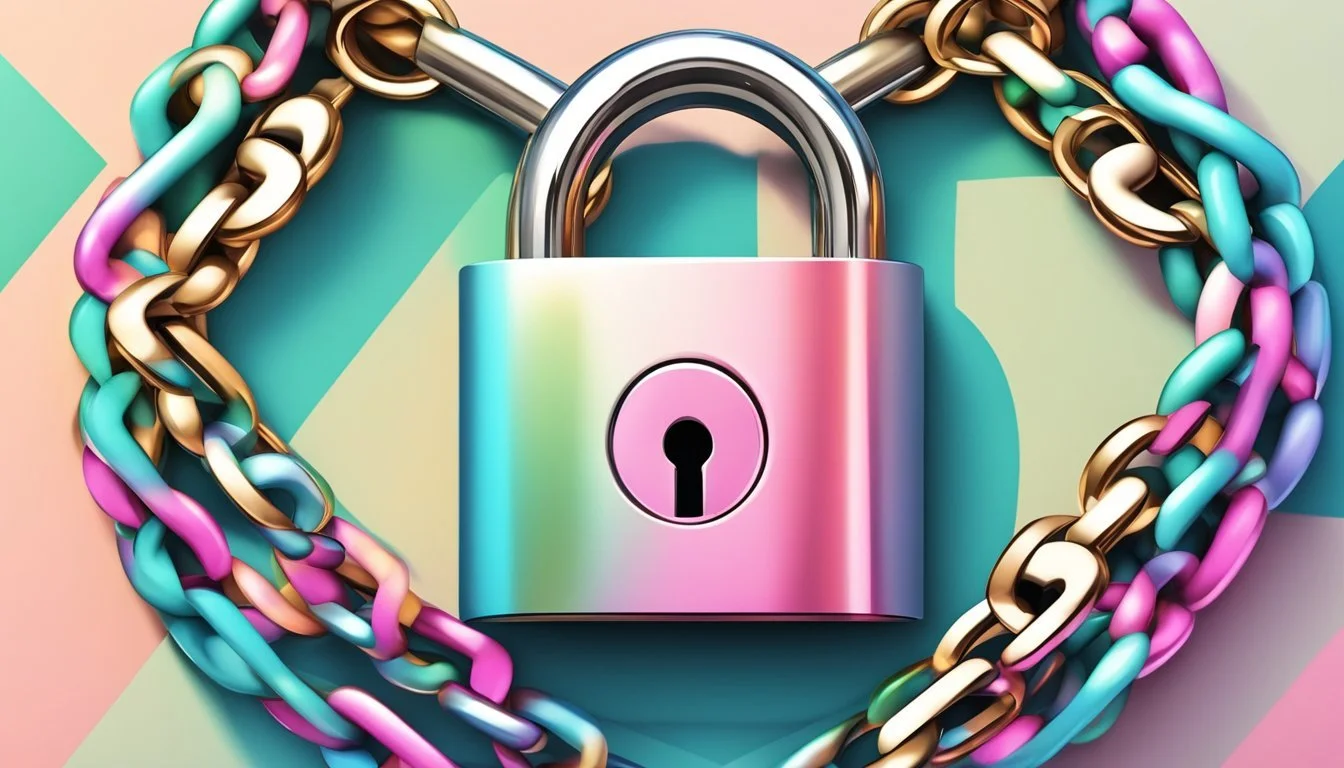8 Ways to Protect Your Privacy from a Narcissistic Ex-Partner
Essential Strategies for Safety and Peace
Navigating life after ending a relationship with a narcissistic ex-partner can be a challenging experience. Ensuring one's privacy and personal boundaries are respected is crucial during this period. Understanding how to safeguard your privacy can create a secure space for healing and growth.
Dealing with a narcissistic ex often involves maneuvering through various emotional and practical barriers. Implementing strategies to protect your personal information and interactions is essential in maintaining control over your life and protecting your well-being.
1) Use Strong, Unique Passwords
To protect your privacy, it is crucial to use strong, unique passwords for each of your accounts. This prevents any unauthorized access by your ex-partner.
A strong password should be at least 16 characters long and include a mix of uppercase and lowercase letters, numbers, and symbols. Avoid using common phrases, song lyrics, or movie quotes.
Consider using a password manager. This tool can generate, store, and automatically fill in passwords for you, making it easier to manage multiple complex passwords. This eliminates the need to remember every password and reduces the risk of using weak or repeated passwords.
Regularly update your passwords. Change them periodically to ensure continued security. Avoid reusing passwords across different accounts to prevent a breach from affecting multiple services.
Lastly, enable two-factor authentication (2FA) wherever possible. This adds an extra layer of security, requiring a second form of verification, such as a text message or authentication app, to access your account. This measure significantly strengthens your defenses against any potential intrusion.
2) Enable Two-Factor Authentication
Enabling two-factor authentication (2FA) adds an extra layer of security to online accounts, making it harder for unauthorized individuals to gain access.
Two-factor authentication requires two forms of identification to access an account, typically combining something you know (your password) with something you have (an access code sent to your device).
To set it up, go to the account settings of your online services and look for options such as two-factor authentication, two-step verification, or multi-factor authentication.
Focus on securing sensitive accounts first, including banking, email, and social media.
For Apple devices, navigate to Settings, tap your name, select Password & Security, and turn on 2FA. On other devices, account settings will often have a similar process.
Implementing 2FA can significantly improve account security. Using it on all possible accounts minimizes the risk of unwanted access.
For more detailed steps, visit resources like Wells Fargo or the FTC.
3) Regularly Update Privacy Settings
When dealing with a narcissistic ex-partner, it's crucial to regularly update privacy settings on all social media accounts. This minimizes their ability to view your personal information and activities.
Frequently changing passwords and enabling two-factor authentication can add another layer of security. This ensures that even if someone tries to breach your account, they will face additional obstacles.
Make it a habit to review privacy settings on platforms like Facebook, Instagram, and Twitter. For example, adjust who can see your posts and interact with your content.
Updating privacy settings on other digital tools such as email and cloud storage is also important. Ensure that only trusted contacts have access to sensitive information.
Remember to adjust settings on any shared accounts or services previously accessed by the narcissistic ex-partner. It's also wise to disable location sharing services on mobile devices and social media platforms. More on this topic is explained in Psychology Today's article.
Utilizing ad blockers can further secure your online presence by blocking trackers and ads that monitor your online activity. Insights into these tools can be found in this guide.
Take these steps seriously to protect your privacy and peace of mind from a narcissistic ex-partner.
4) Monitor Device Permissions
Regularly reviewing your device permissions is crucial. Many apps request access to information that they don't necessarily need. By limiting these permissions, you reduce the risk of unauthorized access to your data.
Check the settings on your phone and other devices. On Android, go to Settings > Apps > Permissions. On iPhone, navigate to Settings > Privacy.
Make sure to deny permissions that seem unnecessary or invasive. Only allow apps to access the information essential for their function. For instance, a weather app doesn't need access to your contacts.
It's also important to keep your software up-to-date. Updates often include security improvements that can protect against vulnerabilities. Enable automatic updates to ensure your device is always protected.
Taking these steps helps maintain better control over your digital privacy and security.
5) Utilize End-to-End Encrypted Messaging Apps
When dealing with privacy concerns, especially from a narcissistic ex-partner, it's essential to switch to secure messaging apps.
End-to-end encryption ensures that only you and the recipient can read the messages.
Apps like Signal and WhatsApp are renowned for their strong encryption protocols.
Signal is highly recommended for its robust security features and open-source code.
WhatsApp, widely recognized for its user-friendly interface, also offers end-to-end encryption.
Another option to consider is Telegram, known for its server-client encryption and encryption caveats for voice and video calls.
For those who prefer SMS, Silence provides encrypted SMS/MMS communication. It builds upon the reliable foundation of the Signal protocol.
Encrypted messaging apps protect your conversations from being intercepted or monitored by unauthorized parties. This is crucial when you want to keep your communications private and secure.
These apps not only safeguard your texts but often extend encryption to voice calls and multimedia messages. Consequently, every aspect of your digital communication remains protected from prying eyes.
6) Limit Social Media Sharing
Reducing the amount of personal information shared on social media is crucial to protect one’s privacy. Narcissistic ex-partners may use this information to manipulate or cause harm.
He or she should consider setting social media profiles to private. This limits visibility to only trusted friends and family.
In addition, they should avoid posting real-time updates of their location. This can prevent a narcissistic ex from tracking their movements.
Regularly reviewing friend lists and removing any suspicious or untrustworthy contacts is also advisable. This helps to maintain a safe online environment.
Lastly, it is beneficial to limit status updates and avoid sharing sensitive information, such as personal struggles or financial details.
7) Change Phone Number and Email
Changing your phone number and email address is a crucial step to protect your privacy from a narcissistic ex-partner.
Narcissists often refuse to respect boundaries. By keeping your old contact information, you leave yourself open to continuous harassment.
Make sure to notify trusted friends and family of your new contact details. This ensures you stay connected with your support network while keeping unwanted communication at bay.
Be thorough by updating your information with any services or subscriptions tied to your old email and phone number. This prevents your ex-partner from using them to gain access to your personal information.
Update your social media accounts with your new email address. This provides added security and prevents any possible backdoor entry through password recovery.
When you change your phone number, remember to block your ex’s number on your new device. This creates an additional layer of protection against unwanted calls or messages.
Consider using a secondary email for essential communications and a primary one for everyday use. This strategy helps in case your new email address is compromised.
By taking these actions, you reduce the risk of re-engagement and safeguard your peace of mind. For further advice, check out Arcadian Counseling.
8) Securely Store Important Documents
Protecting your privacy involves securely storing important documents. Use a reliable password manager to encrypt sensitive data. This reduces the risk of unauthorized access.
Local storage options, such as external hard drives or USB flash drives, are another secure choice. These devices should be kept in a safe, locked location.
Cloud-based storage services, like Google Drive or Dropbox, offer additional security features. Ensure you use multi-factor authentication and strong passwords for these services.
Shred physical copies of documents that are no longer needed. This prevents sensitive information from falling into the wrong hands.
By adhering to these practices, one can significantly enhance their privacy and protect personal information from a narcissistic ex-partner.
Understanding Privacy Risks from a Narcissistic Ex-Partner
Privacy risks posed by a narcissistic ex-partner can be significant and multifaceted. It's crucial to recognize various tactics they might employ to compromise your privacy and to understand their distinctive malicious behaviors.
Recognizing Malicious Behavior
Narcissistic ex-partners often exhibit behaviors that jeopardize personal privacy. Emotional manipulation is a common tactic; they use guilt, shame, and intimidation to extract sensitive information. These individuals may distort realities, making one doubt their perceptions.
Another red flag is their relentless need for control. Narcissists may try to access emails or social media accounts, directly infringing on privacy. They often create situations where they appear indispensable, making it easier to manipulate information.
Keeping an eye on persistently intrusive actions is vital. Spying, constant calls, or showing up unannounced signals an overstep of boundaries. These acts not only undermine privacy but also heighten emotional distress, trapping the individual in a cycle of anxiety and vulnerability.
Common Tactics Used by Narcissistic Ex-Partners
Gaslighting is a prevalent tactic, where the narcissist distorts facts to make the individual question their memory or perception. By sowing doubt, they gain access to private information. Social media surveillance is another method; monitoring posts, comments, and interactions to gather personal details is an easy and invasive tactic.
Narcissists may also deploy financial control. Accessing joint accounts or financial records allows them to monitor spending and gain insights into one’s life. Isolation tactics can also be critical. By discouraging interactions with friends and family, they can limit external support, making privacy breaches easier.
In extreme cases, stalking may occur. Utilizing GPS tracking or hacking into digital devices to follow every move is not uncommon. Keeping interactions minimal and disengaging from attempts to intertwine lives post-separation is essential in safeguarding privacy.
Legal Protections and Resources
Securing legal protections and understanding digital security laws are crucial steps in safeguarding your privacy from a narcissistic ex-partner. These measures provide practical and enforceable ways to protect your personal space and ensure your safety.
Restraining Orders
A restraining order is a legal document that restricts your ex-partner's ability to contact you or come near you. This document can be vital in situations where there is a threat of harassment, stalking, or abuse.
To obtain a restraining order, you need to file a petition with the court. Include any evidence of threats, harassment, or physical abuse. While the process can vary by jurisdiction, courts generally consider the immediacy and severity of the threat when granting these orders.
Types of restraining orders include emergency, temporary, and permanent orders. Each type provides different levels of protection and requires different proof and processes. It’s important to familiarize yourself with the specific requirements and process in your area.
Digital Security Laws
Digital security laws are designed to protect individuals from cyberstalking, harassment, and unauthorized access to personal information. These laws address various forms of online misconduct, such as hacking into personal accounts, spreading defamatory information, and cyberstalking.
Federal and state laws can provide protection. Engaging with a legal professional who specializes in cyber law can help you understand your rights and the best course of action. If your ex-partner engages in any online harassment, document all incidents.
Consulting with authorities and using legal resources can prevent further digital abuse and enhance your overall security. Digital security practices, such as changing passwords and using two-factor authentication, also play a crucial role in maintaining your digital privacy.











